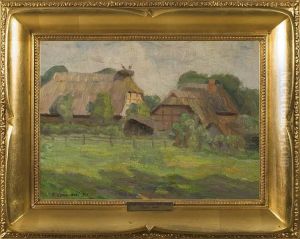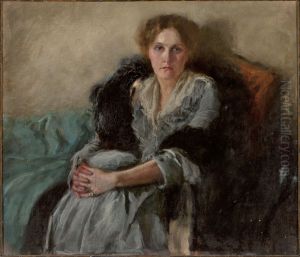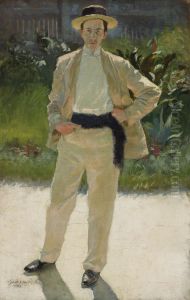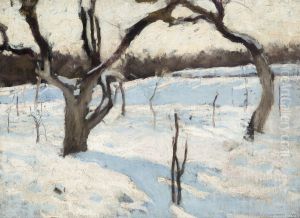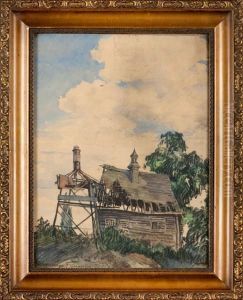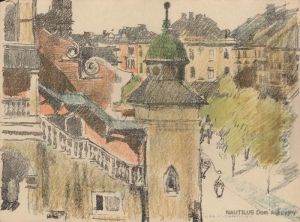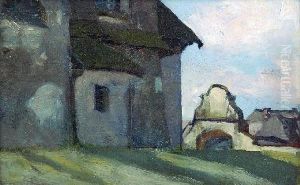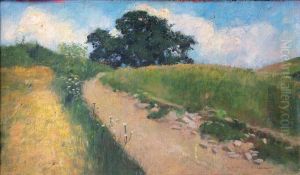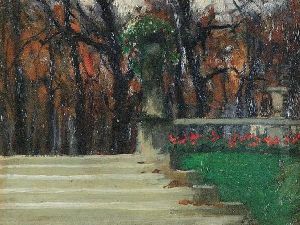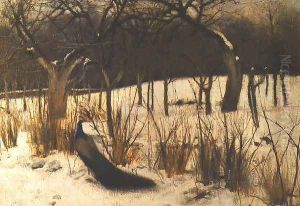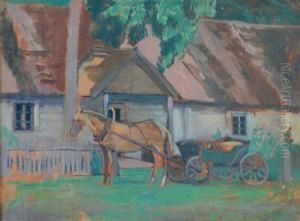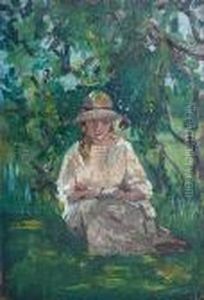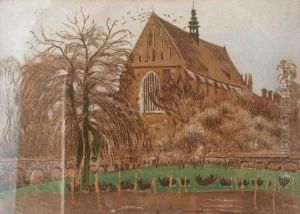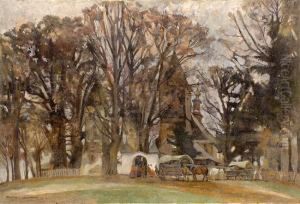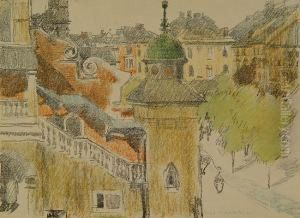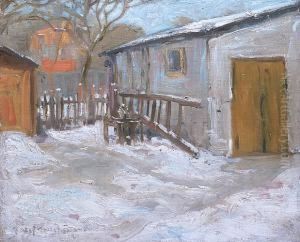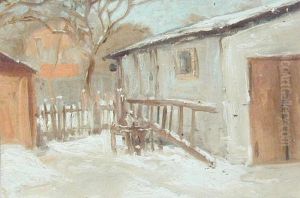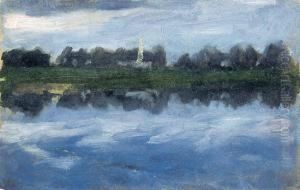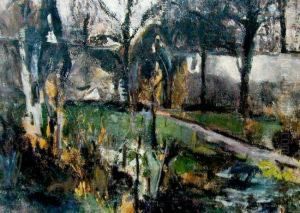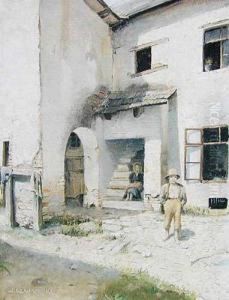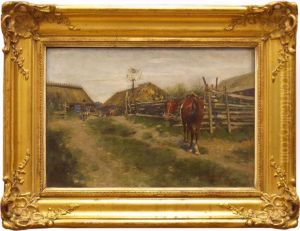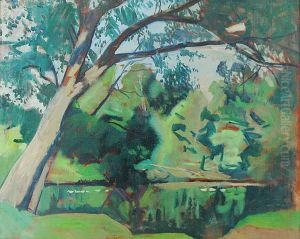Jozef Czajkowski Paintings
Jozef Czajkowski was a Polish painter, architect, and designer born on November 4, 1872, in Warsaw, Poland, which at the time was part of the Russian Empire due to the partitions of Poland. He is known for his contributions to both the visual arts and architectural design, and his works are often characterized by their incorporation of historical Polish motifs and themes.
Czajkowski studied architecture initially at the Imperial Technical School in Warsaw, but his education was interrupted by his involvement in the independence movement, which was striving for Poland's liberation from Russian rule. After being exiled to Siberia for his activities, he managed to flee to Paris, where he continued his studies at the École des Beaux-Arts, one of the most prestigious art schools in France.
In Paris, Czajkowski was influenced by the Art Nouveau movement and the teachings of his professors, which included prominent architects and designers of the era. He began his career as an architect but also indulged in painting. His architectural work included designs for residential buildings, public edifices, and interior decorations, many of which featured a blend of modern styles with traditional Polish elements.
After Poland regained independence in 1918 following World War I, Czajkowski returned to his homeland and played a significant role in the reconstruction and modernization of the country. He took part in designing various important projects, including war cemeteries and monuments to honor the Polish soldiers who had fought for the country's freedom.
Throughout the interwar period, Czajkowski remained an influential figure in Polish art and architecture. He was also an educator, teaching at the Warsaw University of Technology and influencing a new generation of Polish architects.
Jozef Czajkowski's career was dramatically affected by the outbreak of World War II. During the war, much of Poland was devastated, including many of his works. After the war, with the change in political climate under communist rule, his style and contributions were less aligned with the prevailing ideologies.
Czajkowski died on January 1, 1947, in London, England, where he had moved after the war. Despite the challenges he faced throughout his life, including political upheaval and war, his legacy as a proponent of Polish art and architecture endures. His works continue to be celebrated for their unique combination of modern artistry and homage to Polish history and culture.
